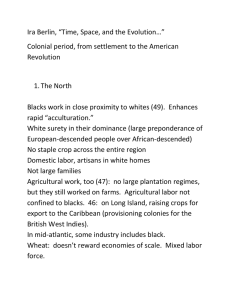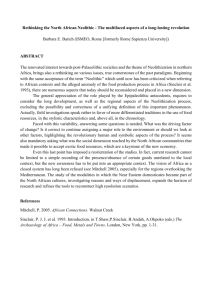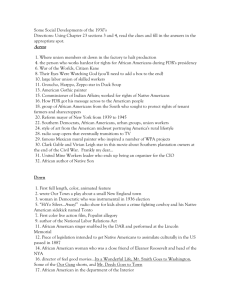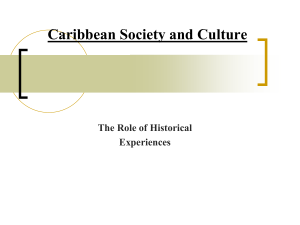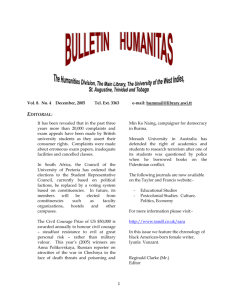In the African culture, and in the cultures that derive from African
advertisement
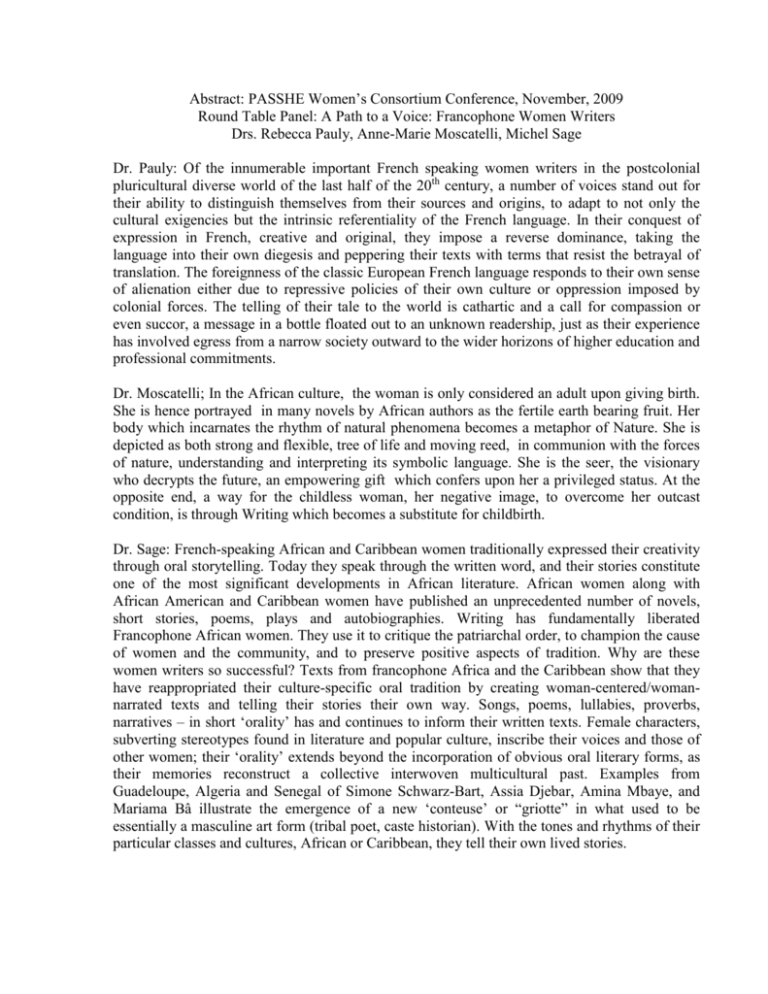
Abstract: PASSHE Women’s Consortium Conference, November, 2009 Round Table Panel: A Path to a Voice: Francophone Women Writers Drs. Rebecca Pauly, Anne-Marie Moscatelli, Michel Sage Dr. Pauly: Of the innumerable important French speaking women writers in the postcolonial pluricultural diverse world of the last half of the 20th century, a number of voices stand out for their ability to distinguish themselves from their sources and origins, to adapt to not only the cultural exigencies but the intrinsic referentiality of the French language. In their conquest of expression in French, creative and original, they impose a reverse dominance, taking the language into their own diegesis and peppering their texts with terms that resist the betrayal of translation. The foreignness of the classic European French language responds to their own sense of alienation either due to repressive policies of their own culture or oppression imposed by colonial forces. The telling of their tale to the world is cathartic and a call for compassion or even succor, a message in a bottle floated out to an unknown readership, just as their experience has involved egress from a narrow society outward to the wider horizons of higher education and professional commitments. Dr. Moscatelli; In the African culture, the woman is only considered an adult upon giving birth. She is hence portrayed in many novels by African authors as the fertile earth bearing fruit. Her body which incarnates the rhythm of natural phenomena becomes a metaphor of Nature. She is depicted as both strong and flexible, tree of life and moving reed, in communion with the forces of nature, understanding and interpreting its symbolic language. She is the seer, the visionary who decrypts the future, an empowering gift which confers upon her a privileged status. At the opposite end, a way for the childless woman, her negative image, to overcome her outcast condition, is through Writing which becomes a substitute for childbirth. Dr. Sage: French-speaking African and Caribbean women traditionally expressed their creativity through oral storytelling. Today they speak through the written word, and their stories constitute one of the most significant developments in African literature. African women along with African American and Caribbean women have published an unprecedented number of novels, short stories, poems, plays and autobiographies. Writing has fundamentally liberated Francophone African women. They use it to critique the patriarchal order, to champion the cause of women and the community, and to preserve positive aspects of tradition. Why are these women writers so successful? Texts from francophone Africa and the Caribbean show that they have reappropriated their culture-specific oral tradition by creating woman-centered/womannarrated texts and telling their stories their own way. Songs, poems, lullabies, proverbs, narratives – in short ‘orality’ has and continues to inform their written texts. Female characters, subverting stereotypes found in literature and popular culture, inscribe their voices and those of other women; their ‘orality’ extends beyond the incorporation of obvious oral literary forms, as their memories reconstruct a collective interwoven multicultural past. Examples from Guadeloupe, Algeria and Senegal of Simone Schwarz-Bart, Assia Djebar, Amina Mbaye, and Mariama Bâ illustrate the emergence of a new ‘conteuse’ or “griotte” in what used to be essentially a masculine art form (tribal poet, caste historian). With the tones and rhythms of their particular classes and cultures, African or Caribbean, they tell their own lived stories.
